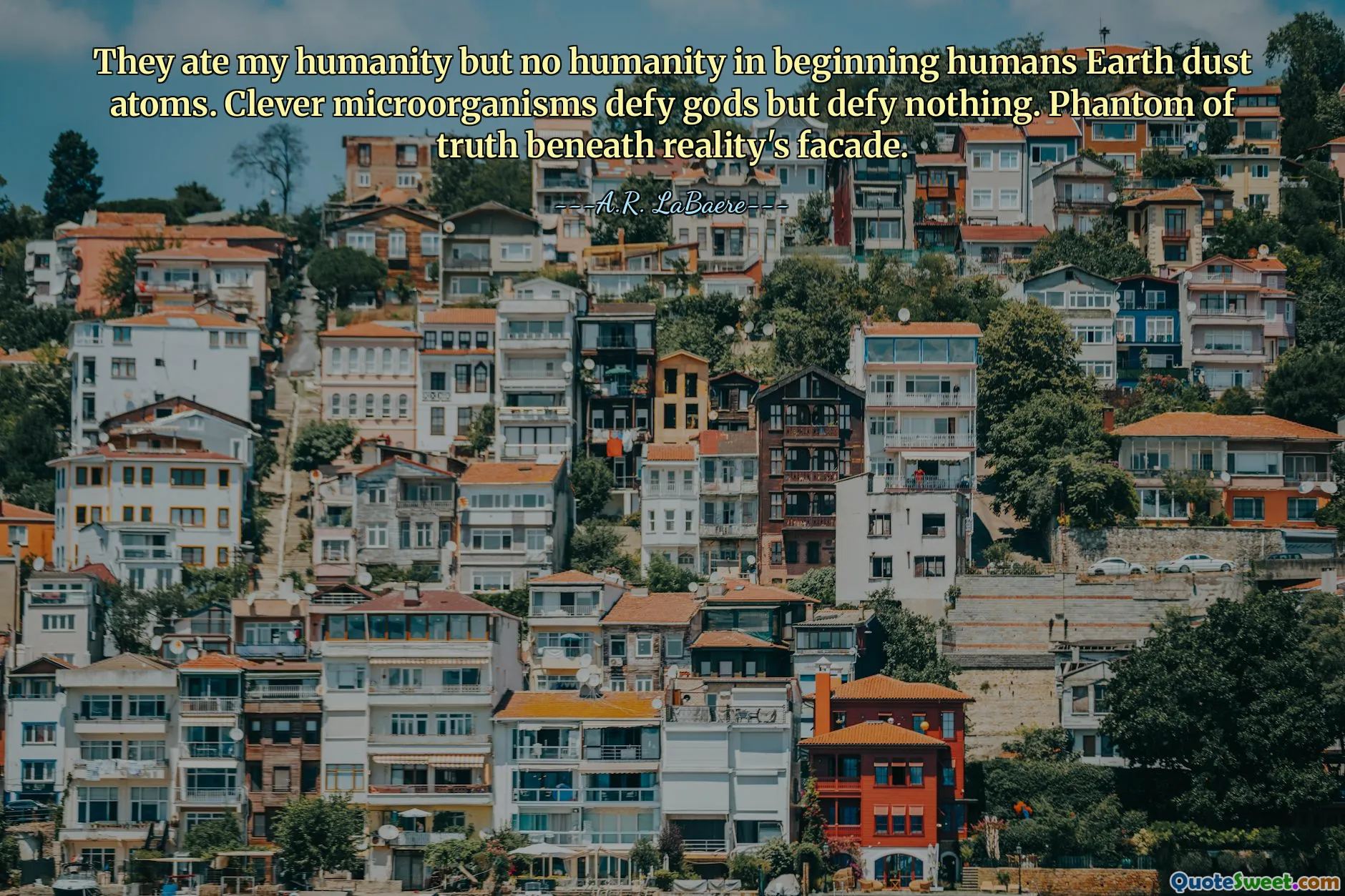
They ate my humanity but no humanity in beginning humans Earth dust atoms. Clever microorganisms defy gods but defy nothing. Phantom of truth beneath reality's facade.
This quote invites profound contemplation on the nature of existence, identity, and the unseen forces that shape our reality. It suggests that humanity's essence can be diminished or consumed—perhaps symbolizing societal pressures, loss of individuality, or the dehumanizing aspects of modern life. Interestingly, it contrasts this with the idea that true life comes from the simplest and most fundamental elements—earth, dust, atoms—reminding us that despite our complex civilizations, we are ultimately composed of the basic building blocks of nature.
The mention of "clever microorganisms" defying gods hints at the resilience and ingenuity of life forms that operate beyond human comprehension or authority. Microorganisms, often unseen, play crucial roles in ecosystems and even life itself, challenging notions of divine control or supremacy. The phrase "defy nothing" further emphasizes a profound independence—these microbes are independent of divine or human boundaries.
The phrase "Phantom of truth beneath reality's facade" evokes the idea that what we perceive on the surface is often superficial or deceptive. Beneath the illusions crafted by our senses, there might lie a deeper, perhaps more truthful reality—one obscured by appearances and perceptions. This aligns with philosophical ideas that question the nature of reality, implying that truth might be elusive or hidden behind layers of deception.
Altogether, the quote reflects on the fragility and resilience of life, the importance of understanding what truly matters beyond surface appearances, and the recognition of unseen forces—whether microscopic or metaphysical—that influence our existence. It beckons us to look beyond the obvious, to question absolute truths, and to appreciate the profound interconnectedness of all that is, from dust to consciousness.











